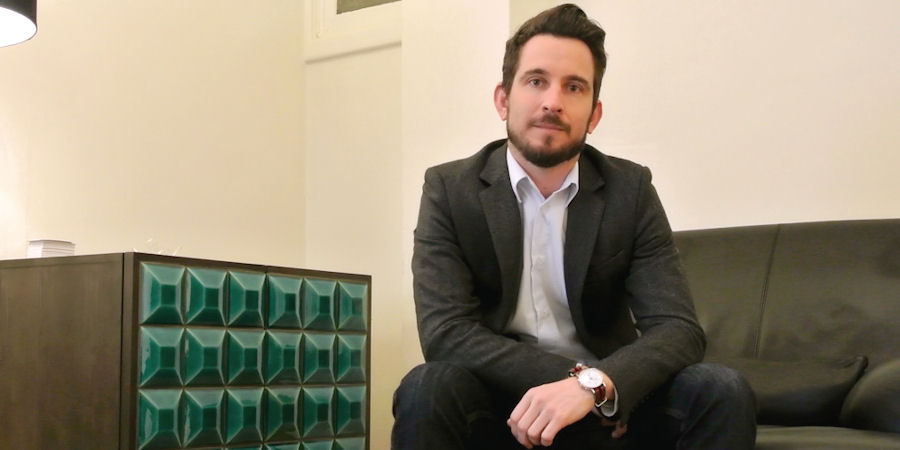When contacting a therapist, let them know you found them at Good Therapy.
- Thank You
- Thank You

Mr Benjamin Shields
Clinical Psychologist
Spencer Street Psychology
West Melbourne, VIC 3003
In Person + Telehealth
Philosophy & Vision
An evidence-based, outcome-focused, innovative clinical psychology practice in West Melbourne. Our vision is to provide a respectful, informal, caring experience for our clients, tailored to each individual. We are very passionate about helping our clients to explore, heal, and improve in a safe environment. We work successfully with people of diverse backgrounds and ages across a wide range of mental health, emotional, relationship, and career-related issues.
Services
Areas of Special Interest
Accreditations
- Masters of Psychology (Clinical) - 2014
Modalities
ACT - CBT - Interpersonal - Mindfulness - Narrative Therapy - Person Centred - Solution Oriented - Somatic Psychotherapy
Professional Associations
- Australian Psychological Society
- American Psychological Association

A conversation with Benjamin Shields
-
It is a cliche, but I was one of those kids who wanted to 'help people' when he grew up. I couldn't think of any other profession that was as direct in this sense, as the work of a psychologist. So, that's what I pursued.
As an 18-year-old, the long journey required to become a psychologist was difficult to comprehend. I studied for four years initially before undertaking a two-year internship, which involved regular supervision and study. After that, I completed a further two years of study for a masters program. Then still, there is a two-year registrar program, which involves regular case reviews and supervision. Now, at 40 years of age, I am pursuing a PhD study in neurofeedback for the treatment of post traumatic stress disorder, and the ways that early trauma and neglect contribute to the trauma response.
I like the challenge that is the work of a psychologist; both personally, and professionally. This work requires that we are never completely separate from it in that our own growth becomes part of the work we do with others. It is a field that is constantly changing as new research becomes available. I read constantly about the brain, I read about old and new techniques, and I have also engaged a lot in my own therapy. To be a therapist in therapy is interesting, because it shows us what it's like to be vulnerable (and even skeptical of the therapist). It is also a way to learn new approaches in a completely experiential way.
The rewards of this work are also great. After many years working in the field, the privilege of working so intimately with people still feels very real to me. -
One of the most important aspects of a therapist's work, I believe, is how we orient ourselves to the client. The model, which is the professional 'dispensing' advice to the client horrifies me. My orientation to the people I work with, hopefully feels like a respectful 'partnering'. I keep a very friendly and transparent style with clients so that they can feel the care I have for them. My practice partner and I have also assembled our offices very carefully too, with the aim of making people feel respected and comfortable here in our space. We spend most of our days here too, but the way things have been composed is primarily with the client in mind.
About partnering with the client in therapy: for the very depressed or anxious client, or those with disabling core beliefs, is like combining the therapist's sense of logic and compassion with the client's existing processes. From my perspective, it can feel like I get to process and experience the client's feelings and ideas, and they are able to do the same with mine. Some conditions like anxiety and depression can vastly impact the brain's ability to maintain context; the 'big picture', as well as the ability to plan. Being able to mirror for the client a different perspective and handling of their situation with my brain (that is not depressed or anxious, at least at that time), can help practice a new pathway for them to practice. To do that in an environment that is respectful, positive, and non-rejecting environment is often a new experience for clients. -
Among other things, I am interested in the areas of attachment, and the interrelationship between attachment and the ways in which we regulate emotions and thoughts. There is fascinating research about how our attachment style, developed in infancy, is pervasive throughout our lives. This research demonstrates the ways in which these patterns influence the ways we experience adult relationships, and how we perceive ourselves, others, and the world.
-
During our training as psychologists, we learn about a limited number of therapeutic approaches. This curriculum is informed by research into techniques that are shown to be effective for a range of symptom presentations. These techniques include (but are not limited to) Cognitive Behaviour Therapy (CBT), Acceptance Commitment Therapy (ACT), Interpersonal Psychotherapy (IPT). These approaches have a very important role, and I use them.
I have been interested for a long time in the study about what make these evidence-based techniques work, and what underlying processes these approaches have in common. The research trials investigating the effectiveness of these techniques involve samples of people who have symptoms that fit into one diagnostic category. In practice, however, people usually experience more of a 'constellation' of symptoms as opposed to fitting neatly into one category. Therefore, the therapist needs to be able to recognise the aspects of manualised treatments that relate to someone's experiences, and assemble those in a personalised way. I am usually very open with clients about the approach we are using together, and why we are using the methods we choose.
Many treatments rely too heavily on 'top-down' approaches, assuming that distress begins at the level of unhelpful thoughts. This is also likely a cultural phenomenon, involving the notion that we 'just have to get our mind right' and everything else will follow.
'Thoughts' usually take the form of 'pictures' in the mind; sometimes moving, sometimes still. They can also take the form of words/scripts i.e the language of the brain. It is important to get a sense of what these thoughts are. For example, are the thoughts going in a forward direction, worry about things that could go wrong, or are they oriented to the past; rumination about previous perceived failings. Is it more of a perseveration issue whereby the person is getting 'stuck' on difficult thoughts in general? And, how does the person feel about the thoughts, and what physiological response usually accompanies them?
'Emotions' are distinct from thoughts in that they occur in the body. For example; people with generalised anxiety often experience tightness and 'bracing' in the shoulders and neck, and in the stomach. Depressed people often feel incredibly tired, and have problems with concentration and focus; a 'foggy' mind. Understanding the two-way relationship between the physical/emotional experience and thoughts is important. This is also of particular importance in the case of early trauma and neglect. Trauma that originated in infancy, in pre-verbal developmental stages, can result in distress that originates both in the body quite independently of distressing thoughts, or within powerful schemas about the self, others, and the world. -
We get to see clients change for the better, and that is such an awesome feeling. When people achieve a greater insight, recognise positive shifts, or even allow themselves to experience pain, it is like a diamond that falls out of my work. Because the relationship I have with clients is so private, I get to hold those experiences very close.

